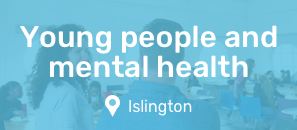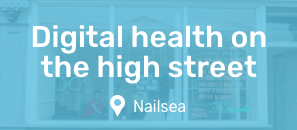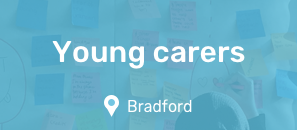Between 2017 and 2020, Good Things Foundation delivered the second and final phase of the NHS Widening Digital Participation Programme, working with NHSX, NHS Digital, NHS England and local partners in health, care and community sectors. The programme supported 23 locally-led pathfinders. The lessons learned from this pioneering programme have been brought together in this report, Digital Inclusion in Health and Care: Lessons learned. Alongside, 5 pathfinders and 22 mini-pathfinders evolved a model of community-based digital health hubs (see Digital Health Hubs: An evaluation).
Throughout the programme, Good Things Foundation took a test-and-learn approach, grounded in co-design and inclusive service design principles. That's why this Digital Health Lab microsite was set up; a place to share insights and resources, working in the open.
Although the programme completed in 2020, just before the first lockdown, the How-To Guides, Lessons Learned and other assets are rich sources of inspiration and practical advice. Especially as mainstreaming of digital health and social care continues at pace, and as concern grows around risks of digital exclusion and health inequalities.
That's why Good Things Foundation (the UK's leading digital inclusion charity with a mission to fix the digital divide - for good) and Thrive by Design ( a multi-disciplinary team with a mission to co-design inclusive digital innovation and improvement in health and care to support everyone to thrive) want to ensure the insights and outputs are still available.
If you experience any difficulties using this site, please contact Thrive by Design. Email: thrivebydesign.lypft@nhs.net
We believe in a world where everyone benefits from digital.
Since 2013 Good Things Foundation has been working with the NHS and other partners to bring digital health inclusion to those people who are most excluded and for whom digital can have the biggest benefit.
According to the Lloyds Consumer Digital Index 2020, an estimated 11.7 million people in the UK are without the digital skills needed for everyday life; 9 million of these struggle to use the Internet without help.
These people are most likely to be socially excluded, hard to reach, and suffer from poorer health.
There is a 19 year difference in healthy life expectancy between the most deprived and the least deprived communities.
Digital can provide access to relevant information and health professionals and peer support, help manage conditions and improve health and wellbeing indicators.
Since 2017, with NHS England, NHS Digital and NHSX, we have supported 23 locally-led pathfinders to explore ways to widen digital participation in health and care in England, with a focus on digitally and socially excluded groups. Local partners included Clinical Commissioning Groups, GPs, hospitals, local authorities, care homes, and voluntary and community sector providers. Another 5 pathfinders and 22 mini pathfinders evolved a model of community-led local ‘digital health hubs’.
This report - Digital Inclusion in Health and Care - brings together lessons learned, practical tips and recommendations. You can find more learning and guidance on the pages below - organised by themes to support you.
In numbers
£6.40ROI for every £1 invested in digital health inclusion (WDP1)
-25%Reduction in GP appointments for those with LTC’s (LTC pathfinder)
52%Said they feel less lonely or isolated
300+Organisations involved in delivering the programme
Themes
Our pathfinder projects
If you are interested in the specifics of each pathfinder you can find all relevant information in the sections below.
























